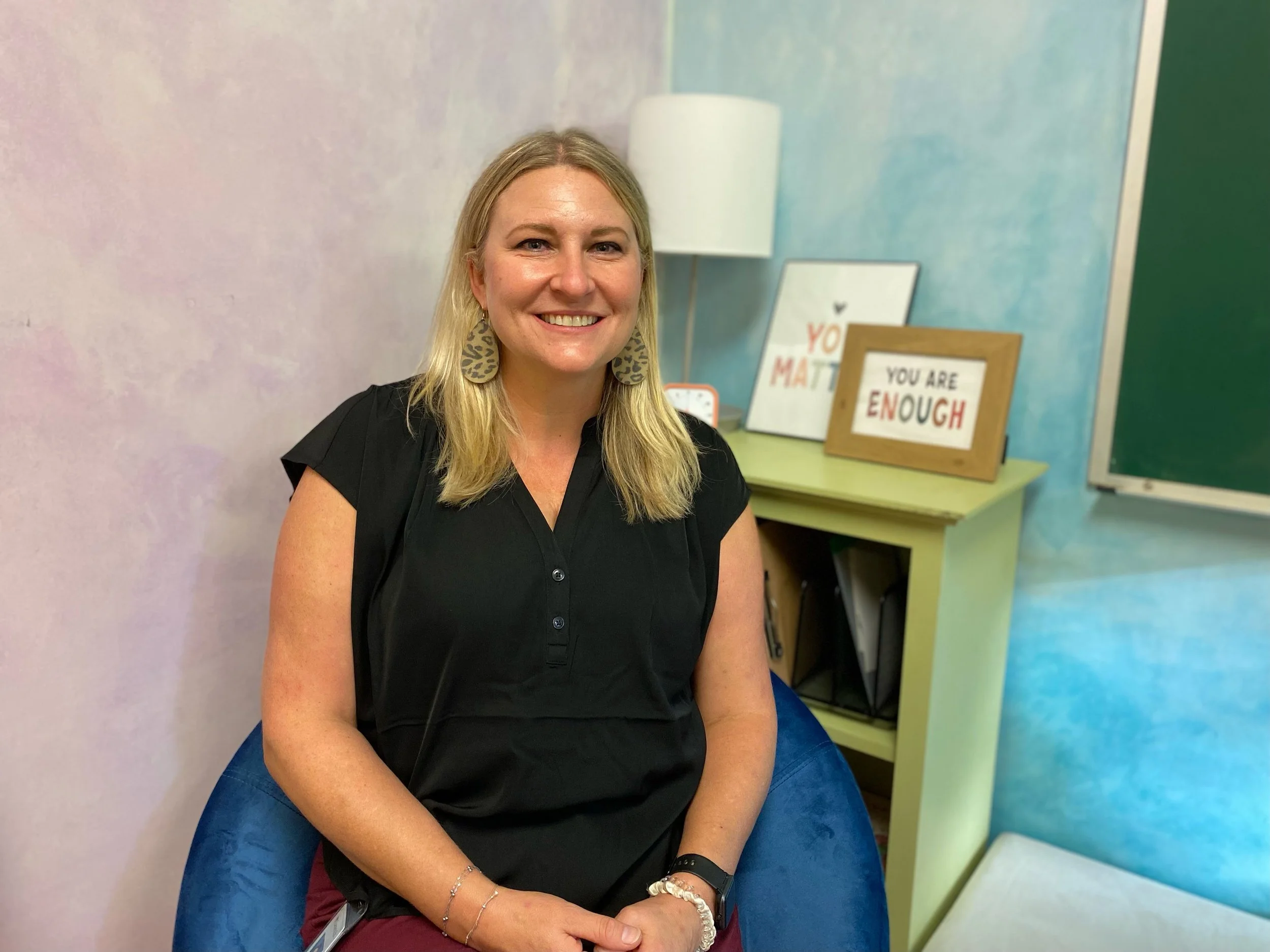Social Emotional Learning and Anti-Bullying Curriculum
The 2022-2023 school year is ushering in the implementation of a school-wide Social Emotional Learning (SEL) & Anti-Bullying Curriculum for grades 1-8. Initiated by Heather Mosenson, Director of Student Support Services, the new developmentally appropriate curriculum for each grade level has been developed and is being implemented by our school counselor, Rebecca Green, whom we are thrilled is returning to Waldorf for a second year.
Mrs. Green is a Pennsylvania Certified School Counselor. She received a BSBA in Marketing with a Psychology minor from Shippensburg University and a Masters of Education in School Counseling from West Chester University. Prior to re-entering the field of school counseling, she worked for 10 years in behavioral health, assisting children with various mental and behavioral health concerns achieve their treatment goals and be successful in various settings. She loves helping children reach their full potential, and looks forward to supporting the students at Waldorf this coming year. She sat down with Heather Mosenson to answer some questions about our new SEL and Anti-Bullying Curriculum.
Why is Social Emotional Learning important?
SEL is important because the skills learned are essentially life skills which are needed to be successful in the classroom, at home, with friends, and in future relationships. Regardless of age, culture, education or socioeconomic status, we all need to know how to manage our emotions, understand and believe in ourselves, establish and maintain positive relationships with others, and make responsible decisions.
What do you hope Waldorf students will gain from the whole-class SEL lessons?
Research shows that students are more likely to show up to school and do their best if they feel connected to themselves, peers, teachers, and school staff. This can result in an even more positive school climate where students feel heard, seen, and valued.
What skills do you hope children will walk away after their counseling lessons this year?
My ultimate goal for any child is for them to know and trust themselves more because that impacts everything else in their lives. So skills such as understanding their emotions, building confidence, coping skills and growth mindset are big ones for me. I also want them to have empathy for others and see the power they have to make a difference in the world through their own words and actions.
Why is exposure to anti-bullying curriculum beneficial to school communities?
All children should feel valued and safe at school, so anti-bullying curriculum and policies are really about protecting that through clear expectations of what is tolerated at school and what is not. It’s important for students to know what bullying is and what to do about it because it really does impact the entire school community in some way. And focusing on building a climate where protective factors such as inclusion, kindness, and empathy are the norm help a great deal in any anti-bullying efforts.
In what ways do the skills learned in your lessons translate to the real world?
These skills are life skills, so we all need them. As students, they need to know how to manage their emotions, work well with others, problem solve, resolve conflicts and communicate; the same skills they need in their lives outside of school, and as an adult.
Some of your lessons involve journaling. What role does self-reflection play in the social emotional learning environment?
Knowing ourselves is such a critical part of creating successful lives, and the power of it can’t be underestimated. Children and adolescents in our society are bombarded with messages filled with shoulds and comparisons, but they have an inner voice they need to get used to hearing, and I believe journaling is one way to do that. Journaling prompts get children thinking about their thoughts, feelings, and opinions on matters they may never have considered before. And that awareness is powerful.
What can families do at home to support your work at school?
Talk about the topics presented in lessons and reinforce the concepts outside of school. To have the greatest impact, SEL ideally should be woven throughout a child’s day so they can really understand and utilize the skills.
I would also say to take the time to really listen to their child and see who they are becoming. Sometimes this can be really hard if we can’t understand or relate to them in certain ways, but families are their most important partners and they want to feel that they aren’t alone in this journey of childhood/adolescence.
Is there anything you would like the Waldorf community to know about you?
Besides that I’m a mom too and get the challenges of raising children, I genuinely care about the well being of the students I work with. I am so grateful for the opportunity to serve the students at the Waldorf School of Philadelphia and truly love being a safe person where the students can feel seen, heard and supported.
And of course, I have an amazing corgi named Mitch :)
As you can see, we are so lucky to have Mrs. Green working with our students this year! Please don't hesitate to reach out to our Director of Student Support Services, Heather Mosenson, at learningsupport@phillywaldorf.com if you have any questions. Want to learn more about National Bullying Prevention Month? Visit stopbullying.gov for resources and information.


